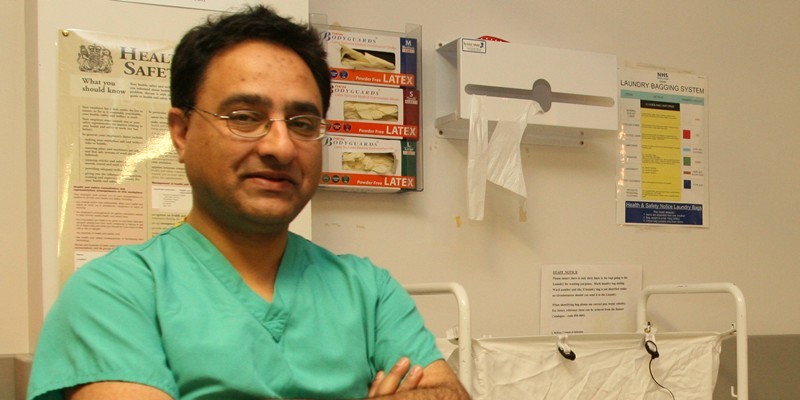A patient in Ninewells Hospital has become the first person in Scotland to benefit from a pioneering new use of keyhole surgery.
The partial cystectomy where part of the bladder is removed was carried out by consultant urological surgeon Ghulam Nabi.
A large cyst on the patient’s bladder was putting him at risk of developing bladder cancer. Mr Nabi removed part of the bladder in the two-and-a-half-hour operation after which the uteters, which carry urine down from the kidneys, had to be implanted into the colon.
“This is a very rare condition which only affects one in around 5000 people,” said Mr Nabi. “Previously in Tayside an open procedure would have been carried out but the keyhole procedure offers the patient increased benefits, including two tiny incisions as opposed to one of around 15 centimetres, less blood loss, a much shorter hospital stay and quicker healing.”
He said Ninewells is now ahead of the rest of Scotland when it comes to minimally invasive surgery.
“Ninewells is really at the forefront of introducing these procedures to Scotland and is becoming a centre of excellence for keyhole surgery,” Mr Nabi said.
“Only a few months ago we carried out the first keyhole procedure in Tayside to remove a cancerous prostate gland and there are many more exciting developments in the pipeline for the future that will hugely benefit our patients.”
He added that keyhole surgery has benefits for both the patients and the NHS because it takes far less time to recover from an operation.
“My aim is that people have to stay less and less time in hospital. If you can get them back on their feet as soon as possible then so much the better.”
Mr Nabi was appointed to the post of consultant urological surgeon and senior clinical lecturer in surgical uro-oncology for NHS Tayside earlier this year.
He previously worked in Aberdeen and underwent training for this procedure at the University Hospital, Leipzig, Germany.
